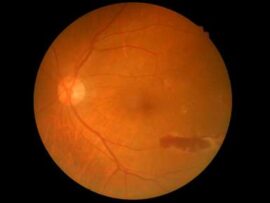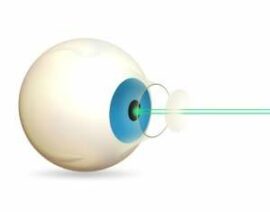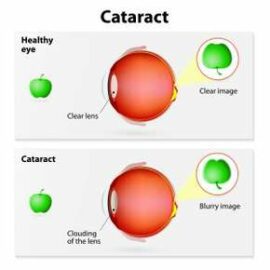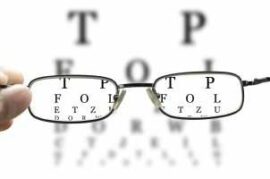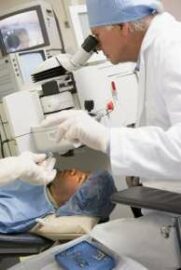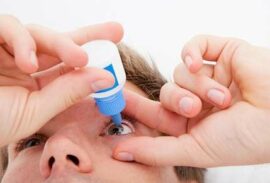Posted by:
Eyes on Rosemont
in Retinal Disorders, We Can Help With
One of the leading causes of vision loss in people who are age 50 or older is age-related macular degeneration (AMD). This common eye condition leads to damage of a small spot near the center of the retina called the macula. The macula provides us with the ability to clearly see objects that are straight […]
Read
More
Posted by:
Eyes on Rosemont
in Retinal Disorders, We Can Help With
Diabetes is a condition that involves high blood sugar (glucose) levels. This can affect many parts of the body, including the eyes. One of the most common diabetic eye diseases is diabetic retinopathy, which is also a leading cause of blindness in American adults. Diabetic Retinopathy Diabetic retinopathy includes several conditions that affect the light-sensitive […]
Read
More
Posted by:
Eyes on Rosemont
in Refractive Disorders, We Can Help With
Somewhere around the age of 40, most people’s eyes lose the ability to focus on close-up objects. This condition is called presbyopia. You may start holding reading material farther away, because it is blurry up close. Reading suddenly gives you eyestrain. You might wonder when manufacturers started putting such small print on everything. Symptoms of […]
Read
More
Posted by:
Eyes on Rosemont
in Cataracts, We Can Help With
The only way to correct the clouded vision caused by advanced cataracts is surgical intervention. If you find yourself pursuing cataract surgery to remove one or both cataract-disease lenses, you may be wondering what surgical approaches are available for treatment. Although eye surgeons have successfully removed cataracts using manual surgical techniques for decades, new laser […]
Read
More
Posted by:
Eyes on Rosemont
in Cataracts, We Can Help With
With cataract surgery, your ophthalmologist removes the cataract-diseased lens of your eye. The ophthalmologist then replaces your natural lens with an artificial one. The Procedure This outpatient procedure is generally safe and takes less than an hour. Your ophthalmologist will dilate your pupil with eye drops and administer local anesthetic eye drops. You may also […]
Read
More
Posted by:
Eyes on Rosemont
in Refractive Disorders, We Can Help With
Myopia, or nearsightedness, means that your eyes can see close objects clearly but struggle to see things in the distance. Nearly 30 percent of Americans are nearsighted. This condition usually develops in children and teenagers, up to about the age of 20. A teacher or parent might notice a child squinting at the chalkboard or […]
Read
More
Posted by:
Eyes on Rosemont
in Refractive Disorders, We Can Help With
There are several types of refractive surgery available to correct vision problems caused by refractive errors, including: LASIK (laser-assisted in situ keratomileusis) Custom or bladeless LASIK Photorefractive keratectomy (PRK) Laser epithelial keratomileusis (LASEK) Epi-LASIK Conductive Keratoplasty (CK) Phakic Intraocular Lenses (IOLs) Refractive Lens Exchange (Clear Lens Extraction) Most of these procedures involve reshaping the curvature […]
Read
More
Posted by:
Eyes on Rosemont
in Refractive Disorders, We Can Help With
A normal cornea — the clear front covering of your eye — has a round curve, like a basketball. However, many people have an irregularly shaped cornea while others have an irregularly curved lens. Both cases can cause light that enters the eye to bend the wrong way, causing blurry vision. This disorder is called […]
Read
More
Posted by:
Eyes on Rosemont
in Refractive Disorders, We Can Help With
People with hyperopia, also known as farsightedness, can usually see objects in the distance, but their close vision is blurry. Symptoms of untreated hyperopia include: Difficulty concentrating on near work, such as reading Eye strain Headaches after reading or other activities involving close focus Aching, burning eyes Irritability from concentrating on tasks In children, eyes […]
Read
More
Posted by:
Eyes on Rosemont
in Glaucoma, We Can Help With
Treatment for glaucoma often begins with medicated eye drops. The goal of these medications is to lower the pressure in the eye (intraocular pressure) and prevent damage to the optic nerve. To gain the most benefits of these medications, use them exactly as prescribed by your eye doctor. Sometimes your doctor may prescribe more than […]
Read
More


